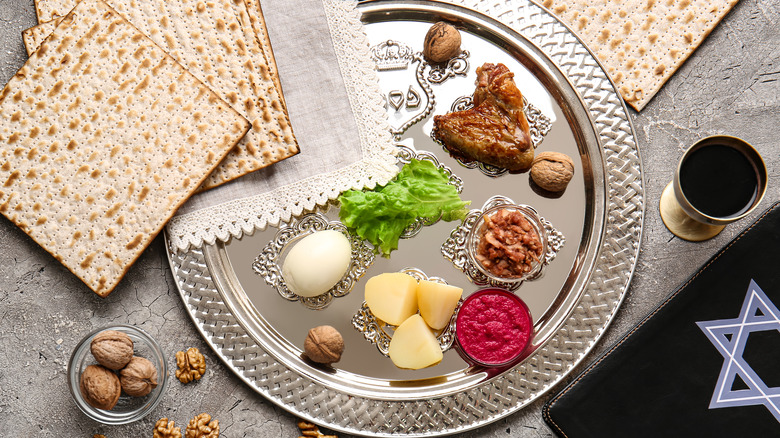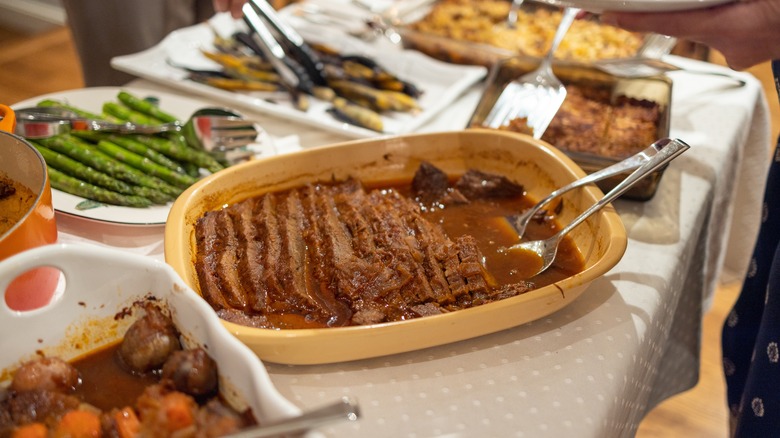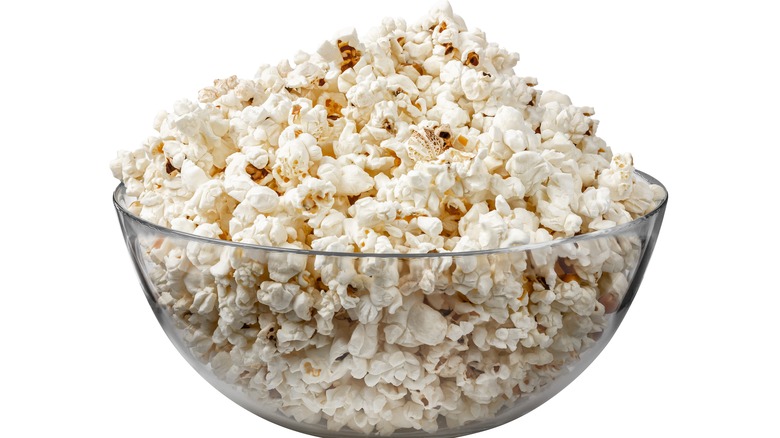Popcorn For Passover: Is It Kosher?
In the Jewish community, Passover is often considered the second most important celebration of the year. Celebrated over eight days, the event commemorates when the Jewish people were freed from slavery in ancient Egypt. While the exact days of the celebration vary from year to year, the Jewish calendar always falls between the 15th and 22nd day of the Hebrew month of Nissan. In addition to the religious aspect of Passover, the food served not only represents the ritual of the event but is a celebration of tradition, which often involves particular foods that can and cannot be enjoyed.
According to OU Kosher, the Jewish dietary law refers to food that should or should not be eaten. While the concept can be traced back to Biblical laws, the complexity of the subject can be confusing. Although the kosher symbol can be a visual indicator for some consumers, it is only one component in this aspect of this robust food subject. Some people can find it helpful to speak to their rabbi for guidance and clarification. As some food rules have evolved, the question of whether some foods, like popcorn, can be enjoyed during the Passover celebration has seen a new interpretation.
What are some prohibited Passover foods?
During the Passover celebration, the Jewish people sit down to a Seder, the traditional meal. Although food is often a focal point, Chabad.org reminds people of the meal's purpose — enjoying food with friends and family while appreciating the community's beliefs and traditions. While there are many recipes for this celebration, a few foods are avoided during the event.
According to Reformed Judaism, chametz is avoided. This category of food generally refers to food that is leaven or "puffed up." Some examples of these ingredients include wheat, barley, rye, oats, and spelt. While matzo, a traditional Passover food, may contain wheat, the type served is not usually allowed to rise, which is why it is considered acceptable under Jewish food traditions.
Another category of food, kitniyot is often considered items like legumes, beans, peas, rice, millet, corn, and seeds. Some Jewish groups avoid these items since they can be ground and baked into a leavened product. Over the years, the rules regarding kitniyot have evolved and some groups choose to enjoy these foods during Passover. Although there is some food to avoid during this religious celebration, there are plenty of other delectable delights to enjoy at those gatherings.
When is popcorn considered kosher?
Whether it's movie night with the family or a low-calorie mid-afternoon snack, popcorn can be a favorite with many people. For some people who choose to be kosher, that simple snack can lead to some questions. While popcorn can be considered kitniyot, it's not quite that simple. How that ingredient is processed and served impacts the kosher designation. Although it may not be the answer people prefer, the reality is that it depends on what type of popcorn is placed in the bowl.
Although OU Kosher states popcorn might be "intrinsically kosher" when it's taken straight from the ear, the preparation of that snack food can change the designation. How it's made and what ingredients are used to process the popcorn impact whether or not it's kosher. Consider the introduction of dairy or a multi-use manufacturing plant, which can both influence the categorization. Although there can be many offerings that have the kosher designation, not every product on the shelf is the same. For people wanting to keep a kosher kitchen, it may be best to look for that symbol on the food packaging as a starting point.


